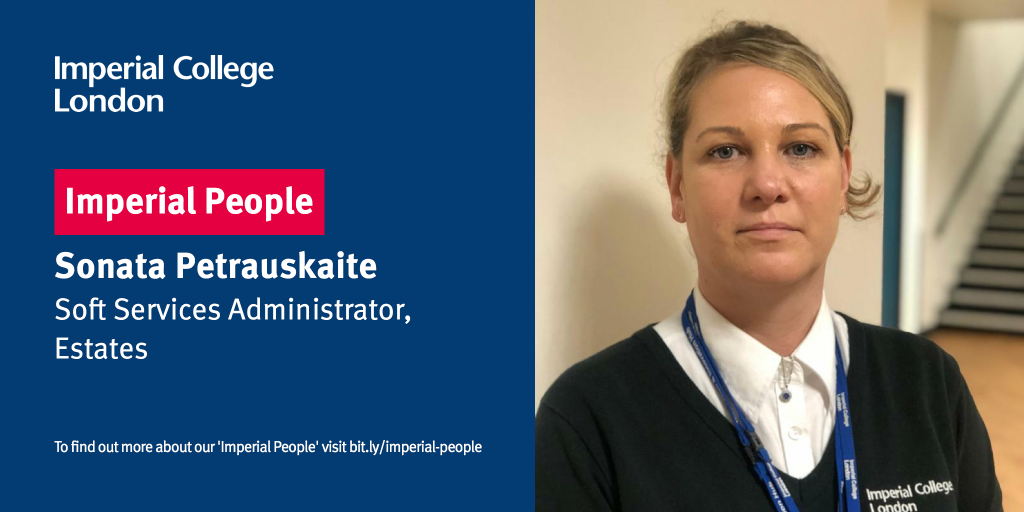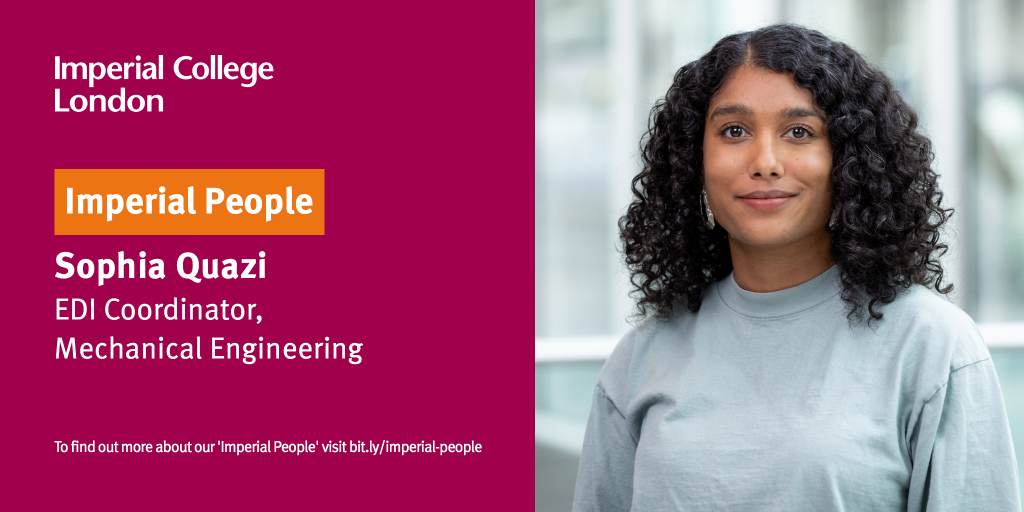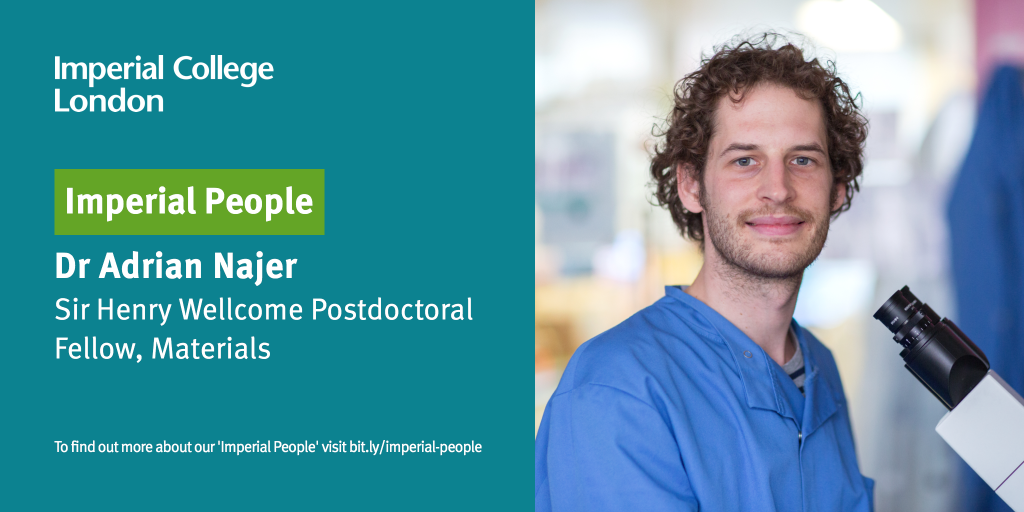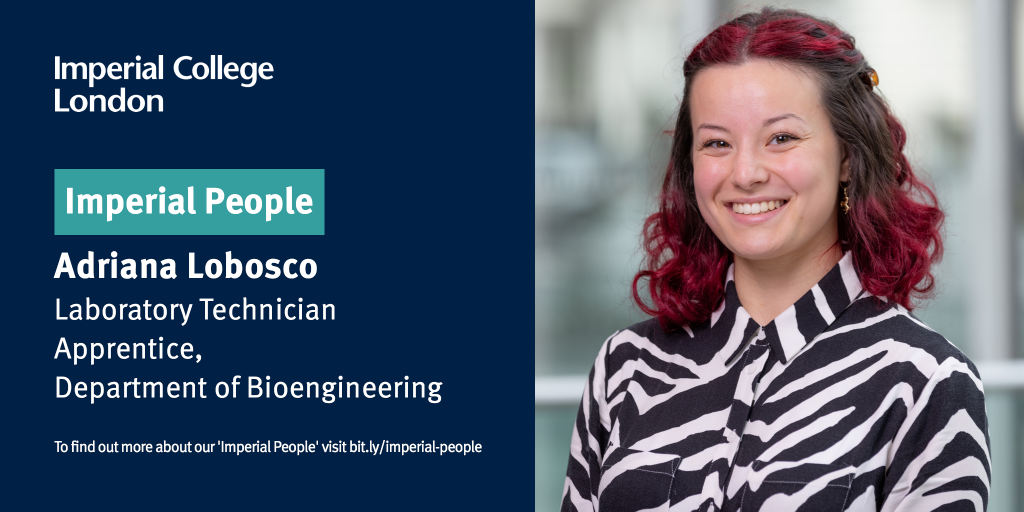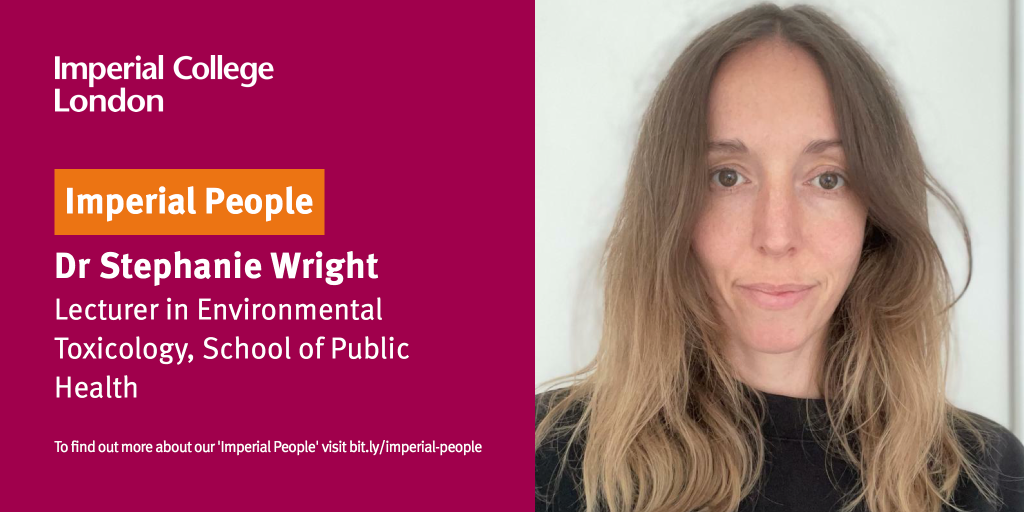“The pandemic helped us to realise that it’s better to recycle, reuse or giveaway as we need to take care of our society”
The Soft Services team is responsible for all the waste recycling, minor removals, chemical and hazardous waste at the College. I joined the team four years ago, having originally joined Imperial 14 years ago.
Before this role, I worked as a Senior Waitress with the Events and Conference department for ten years. After working as a maternity cover in the Soft Services team, I felt I was ready for a move to the team. It was daunting, but I trusted myself to take on a new challenge in a different environment.
My role involves making our Imperial staff, students, and visitors aware of the right recycling procedures to maintain a healthier and safer environment. As a team, we deal with any incoming requests, as well as reporting issues, finding a solution to problems – we are Imperial’s little soldiers! We patrol between campuses, ensuring a safe working and studying environment is in place.
